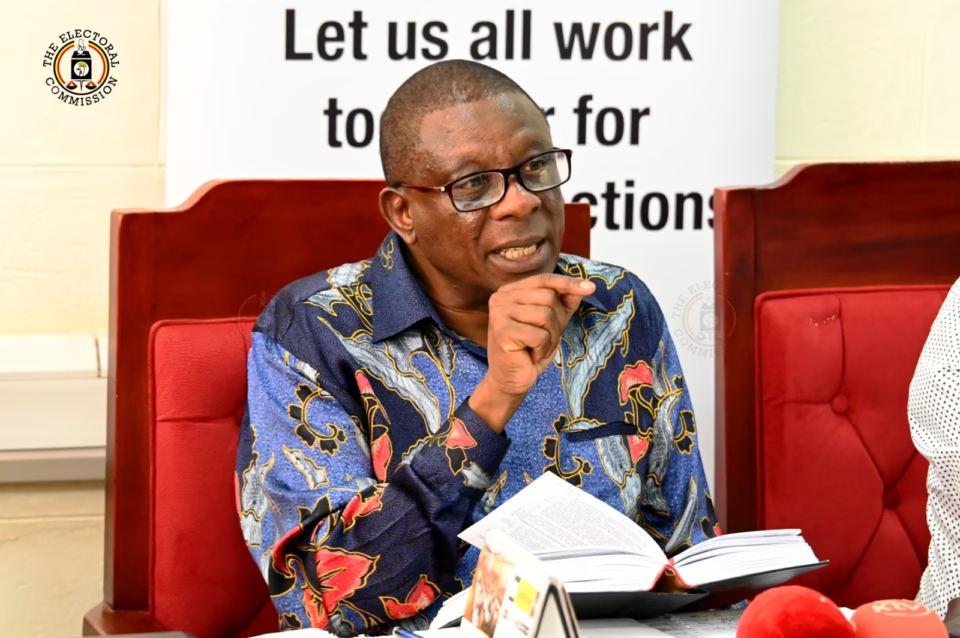Uganda’s long road to the 2026 general elections has officially begun, and the presidential campaign calendar is now set. In a move to avoid confusion, clashes, or double bookings, the Electoral Commission (EC) has released a harmonised schedule that will guide all eight presidential hopefuls as they crisscross the country rallying support.
President Yoweri Museveni is expected to kick off his campaign in Munyonyo, a polished lakeside suburb of Wakiso known for its power and prestige. Meanwhile, opposition leader Robert Kyagulanyi, better known as Bobi Wine, will launch his bid on the same day—September 29, 2025—but from Jinja, the industrial heart of eastern Uganda.
The EC announced that all candidates, including Museveni and Bobi Wine, have agreed to follow a harmonised campaign programme. This followed a high-level meeting between the Commission and representatives of the nominated candidates.
“This approach ensures fairness and peaceful engagement,” said Richard Baabo Kamugisha, Acting Secretary to the Commission. “It gives every candidate a clear space to campaign without unnecessary confrontations.”
The other candidates have also mapped out their starting points:
Robert Kasibante (National People’s Party) – Kassanda
Mugisha Muntu (Alliance for National Transformation) – Kawempe, Kampala
Nathan Nandala Mafabi (Forum for Democratic Change) – Buikwe
Mubarak Munyagwa (Conservative Mobilisation Party) – Kawempe
Frank Bulira Kabinga (Republican People’s Party) – Bugiri
Joseph Mabirizi (Conservative Party) – Venue yet to be confirmed
The two leading candidates are not just separated by ideology—but also by geography and strategy.
Museveni, who turns 81 during the campaign, is starting in Munyonyo, a location steeped in elite symbolism. From there, he heads to Luweero, the battlefield that defined his rise to power in the early 1980s. His route sends a clear message: he is the guardian of Uganda’s political stability, reminding voters of the journey he began four decades ago.
Bobi Wine, aged 43, is taking a different path—both literally and metaphorically. By choosing Jinja as his launchpad, he’s making a statement: he wants to widen his base beyond central Uganda and connect with regions burdened by economic struggles and youth unemployment. It’s a nod to working-class frustrations and a push to expand influence into Busoga and the broader east.
In the campaign’s opening week, the candidates are wasting no time covering ground:
Museveni’s Schedule:
Munyonyo, Luweero, Amolatar, Dokolo, Alebtong, Otuke, Apac, Kwania, Bunyangabu, Kasese, Kole, Lira and Lira City.
Bobi Wine’s Schedule:
Jinja, Buyende, Kaliro, Bugweri, Mayuge, Namayingo, Bushenyi and Rubirizi.
The contrast is clear: Museveni starts from the centre and fans out to the north and west—areas where he’s historically strong. Bobi Wine, on the other hand, is diving into the east early and will later attempt to chip away at Museveni’s dominance in the west.
Uganda’s political map is divided not just by geography, but by loyalties and lived experience. And the campaign plans reflect that.
In Central Uganda, Museveni is leaning on his legacy—places like Luweero and Munyonyo tie his campaign to history and the networks he’s built over decades. Bobi Wine, meanwhile, will return to Kassanda and Mubende later, hoping to re-energise his 2021 Buganda support base.
In the West, Museveni remains deeply entrenched. His early visits to Bunyangabu, Kasese, Bushenyi and Mbarara are strategic and symbolic. Bobi Wine’s visits to Bushenyi and Rubirizi suggest he’s ready to challenge that grip.
The North sees Museveni making a concentrated push, with rallies in Amolatar, Dokolo, Apac, Kwania, Nebbi and Zombo. He’ll be leaning on his narrative of bringing peace to the region. Bobi Wine’s northern campaign begins later with rallies in Hoima, Masindi, and the urban centres of Gulu and Arua.
In the East, Bobi Wine takes the lead, launching in Jinja and staying active in nearby districts. Museveni’s campaign will swing through later, likely when Bobi Wine moves elsewhere.
For the first time in 25 years, Uganda’s presidential race does not include a woman. The field is made up largely of political veterans and a few new faces, but the spotlight is firmly fixed on the Museveni–Bobi Wine rematch.
Museveni, seeking to extend a presidency that began in 1986, is looking for yet another term. Bobi Wine, whose 2021 campaign drew huge crowds but was met with violence and repression, is hoping this second run will go further than the first.
Candidates like Mugisha Muntu and Nandala Mafabi bring experience and institutional credibility to the race, but few analysts expect them to break the Museveni-Bobi Wine duopoly.
Campaigning will run from September 29, 2025, to February 2026. The EC has urged candidates to stick to the harmonised schedule and avoid conflict.
“This election will only be credible if all candidates and supporters respect the rules,” Kamugisha emphasised.
The starting points—Munyonyo for Museveni, Jinja for Bobi Wine—aren’t just logistical choices. They represent two visions for Uganda’s future.
Museveni’s campaign is built around continuity, history, and the idea that Uganda needs his steady hand. Bobi Wine’s campaign is built around disruption, renewal, and a generational shift.
As the campaign trail unfolds, Uganda finds itself once again at a political crossroads—facing a familiar choice between the road well-travelled and the path less taken.



